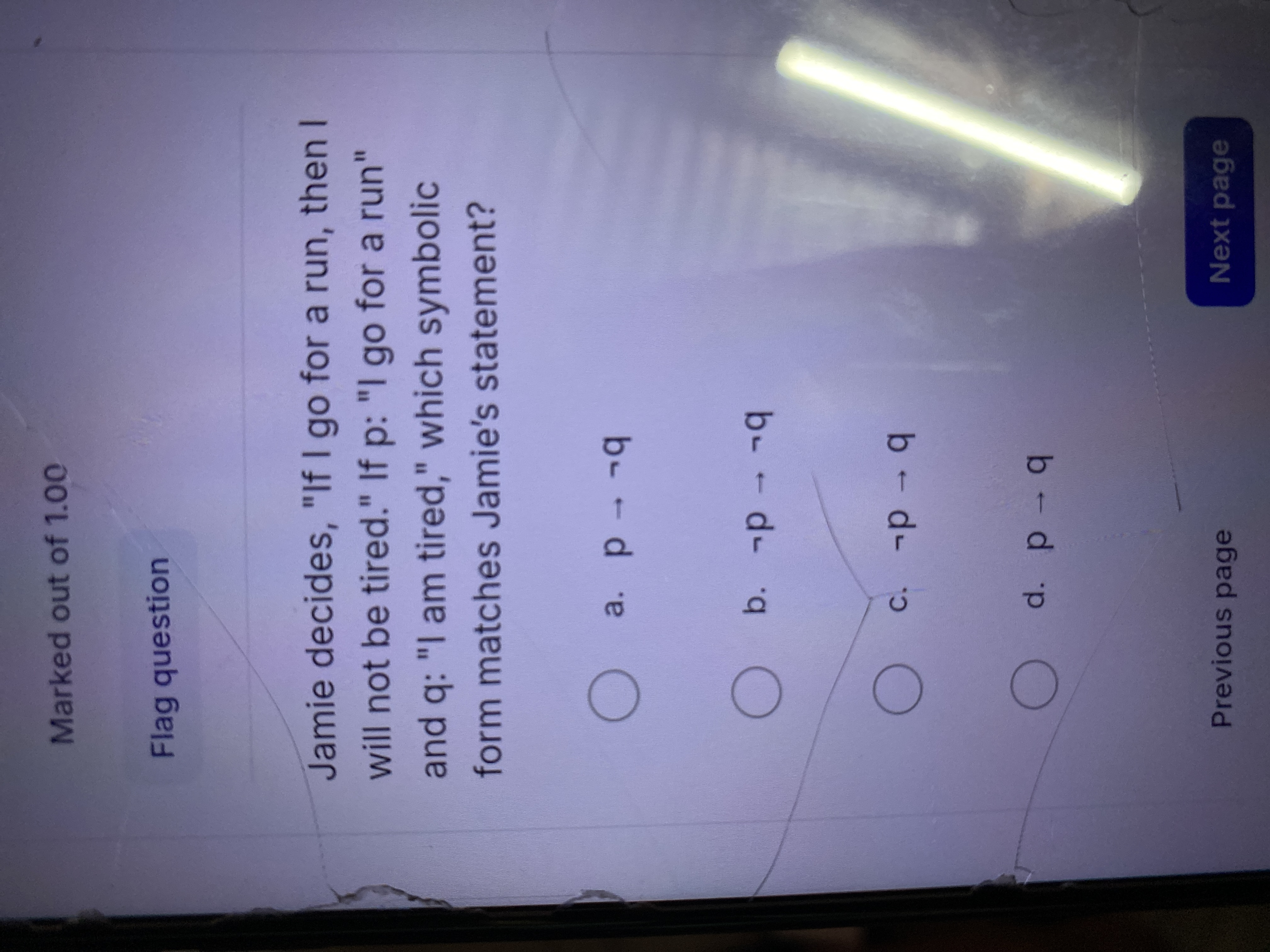Jamie decides, 'If I go for a run, then I will not be tired.' If p: 'I go for a run' and q: 'I am tired,' which symbolic form matches Jamie's statement?

Understand the Problem
The question asks to find the symbolic logic representation of the statement made by Jamie about running and being tired, based on given propositions p and q.
Answer
The symbolic representation is \( p \rightarrow ¬q \).
Answer for screen readers
The correct answer is ( p \rightarrow ¬q ).
Steps to Solve
-
Identify the propositions Let p represent "I go for a run" and q represent "I am tired."
-
Analyze the statement Jamie states: "If I go for a run, then I will not be tired." This can be reformulated in logical terms.
-
Express negation of q The phrase "I will not be tired" implies the negation of q, which can be represented as ¬q.
-
Formulate the conditional statement The original statement can thus be expressed as: $$ p \rightarrow ¬q $$ It means "If p (I go for a run), then not q (I will not be tired)."
-
Select the correct symbolic form From the options given, the representation $ p \rightarrow ¬q $ matches choice (a).
The correct answer is ( p \rightarrow ¬q ).
More Information
This statement follows the form of a conditional statement in propositional logic, representing a logical implication where the truth of one proposition guarantees the truth of another.
Tips
- Confusing negation: It's easy to accidentally state "If I go for a run, then I am tired" instead of addressing the negation.
- Misidentifying propositions: Ensure that the propositions p and q are correctly identified as their respective statements.
AI-generated content may contain errors. Please verify critical information